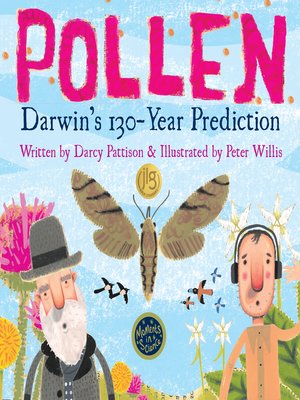
Sign up to save your library
With an OverDrive account, you can save your favorite libraries for at-a-glance information about availability. Find out more about OverDrive accounts.
Find this title in Libby, the library reading app by OverDrive.



Search for a digital library with this title
Title found at these libraries:
| Library Name | Distance |
|---|---|
| Loading... |
A week? A month? A year? No. Sometimes it takes much longer! Scientists need lots of patience.
On January 25, 1862, naturalist Charles Darwin received a box of orchids. One flower, the Madagascar star orchid, fascinated him. It had an 11.5" nectary, the place where flowers make nectar, the sweet liquid that insects and birds eat. How, he wondered, did insects pollinate the orchid? It took 130 years to find the answer.
After experiments, he made a prediction. There must be a giant moth with a 11.5" proboscis, a straw-like tongue. Darwin died without ever seeing the moth, which was catalogued by entomologists in in 1903. But still no one had actually observed the moth pollinating the orchid. In 1992, German entomologist, Lutz Thilo Wasserthal, Ph.D. traveled to Madagascar. By then, the moths were rare. He managed to capture two moths and released them in a cage with the orchid. He captured the first photo of the moth pollinating the flower, as Darwin had predicted 130 years before.
Backmatter includes information on the moth, the orchid, Charles Darwin, Lutz Wasserthal. Also included is Wasserthal's original photo taken in 1992.
Junior Library Guild selection"POLLEN is extraordinary! What a great story that encapsulates so many important concepts in science - pollination, structure and function of living things, and how scientific discoveries take time. It is so well written and will make a wonderful read-aloud." Emily Morgan, co-author of Picture Perfect Science







